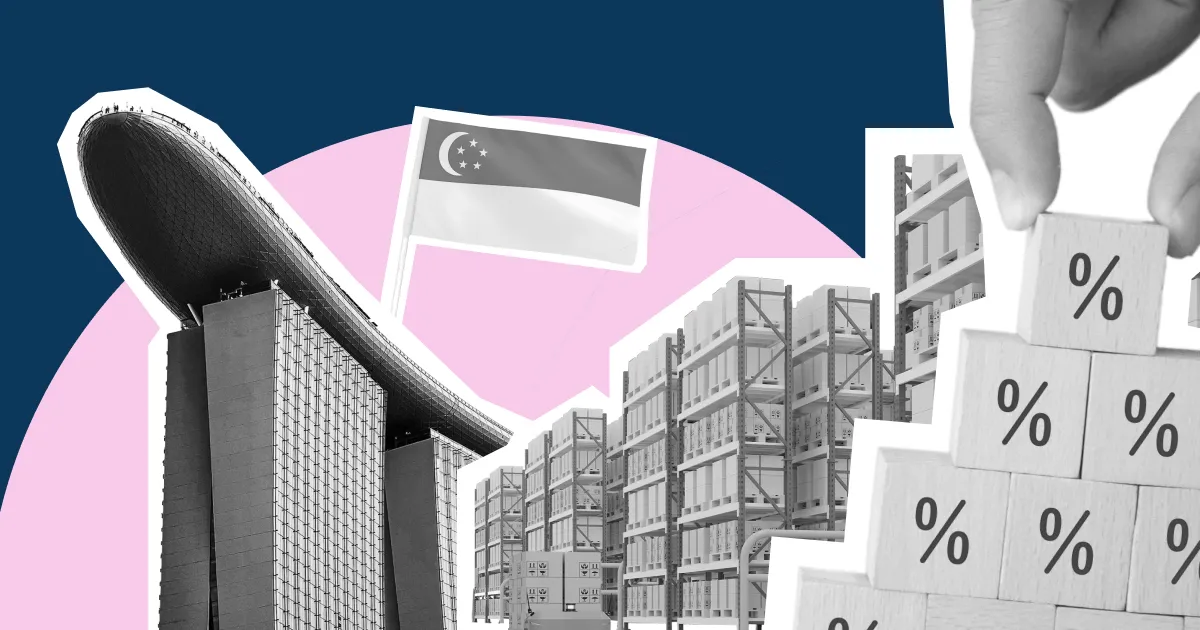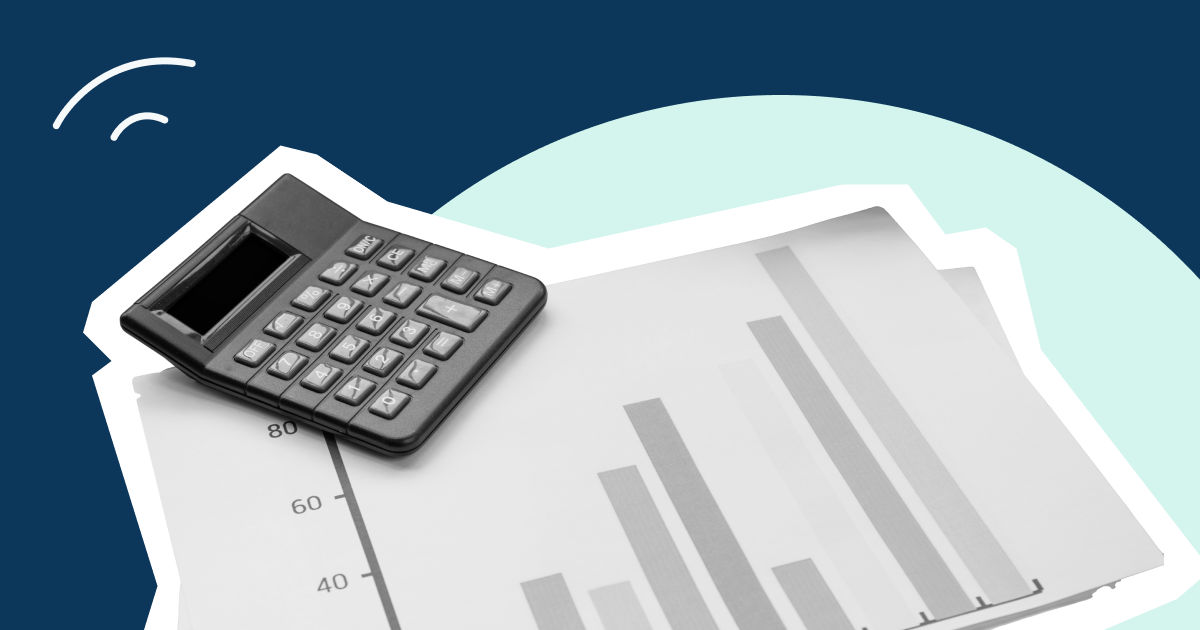Summary
All goods and services imported into Singapore are subject to import tax – more specifically, three types of import tax. They are the Goods and Services Tax (GST), customs duty, and excise duty. Most imported goods and services are subject to GST in Singapore while some of them incur an additional customs duty or excise duty.
For individuals and companies in the business of importing goods into Singapore, this is a detailed guide to the Singapore import tax regime.

Singapore import tax types
At a glance, these are the three types of customs tax in Singapore:
1. Goods and Services Tax (GST)
The goods and services tax is a consumption-based tax levied on almost all goods and services consumed in Singapore, whether produced locally or imported from abroad. This article specifically focuses on GST on imports, which covers almost all goods and services brought into the country from overseas (with a few exceptions, to be dealt with later in the article). As of January 2024, the prevalent GST rate on imports in Singapore is a flat 9% – up from 8% in 2023.
Since its introduction on April 1, 1994, Singapore’s GST rate has increased gradually from an initial 3%. The goods and services tax is an important revenue source as it supports government spending on public goods and infrastructure. It is administered by the Inland Revenue Authority of Singapore (IRAS).
For companies that import goods and services into Singapore, sell them under their brand, and have taxable supplies exceeding SGD 1 million, GST registration is mandatory. To know how to register your business with the GST regime, turn to our article ‘How to Register for GST: Step-By-Step Guide for Singapore Businesses’.
You might also be interested in our e-book 'Responsibilities Of A GST Registered Company In Singapore'.
2. Excise duty
Apart from the goods and services tax, some imported goods in Singapore are subject to an additional customs tax – either an excise duty or customs duty. Such goods that incur both GST as well as customs/excise duty are called dutiable goods. Dutiable goods fall under four categories:
- Intoxicating liquors: These include alcoholic drinks (brandy, wine, beer, whisky, etc), powdered alcohol, liquid alcohol used as raw material, spirits, and so on.
- Tobacco products: These include cigarettes, cigars, chewing tobacco, snuff, manufactured tobacco not meant for smoking, products containing tobacco, and so on.
- Motor vehicles: This category includes all kinds of motor vehicles, including motor homes, ambulances, and hearses.
- Petroleum products: Examples include compressed natural gas (CNG), biodiesel blend, and all petroleum products.
Some alcoholic drinks, tobacco products, motor vehicles, and petroleum products that are manufactured in or imported into Singapore attract an excise duty.

3. Customs duty
Similarly, certain alcoholic beverages imported into Singapore – such as port, ale, stout, and samsu – incur customs duty in addition to GST. When importing alcohol products into Singapore, one must remember that different types of alcohol incur different customs and/or excise duties. For a full list of dutiable goods, you may refer to the Singapore Customs website.
Both customs duty and excise duty are charged as a percentage of the shipment value or at a specific rate per unit of weight (example, litre) or any other quantity.
How to calculate Singapore import tax
As previously mentioned, the current GST rate in Singapore is 9%. And the formula to calculate GST is:
GST payable = CIF x 9%
Here, CIF stands for cost, insurance, and freight value.
Here’s an example: A company imports a sedan valued at SGD 120,000. It pays SGD 1,500 on freight and insurance. The CIF value is, therefore, SGD 121,500. Therefore:
GST payable = 121,500 x 9% = SGD 10,935
However, this calculation doesn’t take into account the excise duty payable on the imported car, which is levied at the rate of 20%. The excise duty payable is, therefore, SGD 24,300. Now, let’s calculate the GST:

While calculating customs tax, remember that certain products are taxed not on a percentage basis but at a specific rate per quantity. For example, the Singapore alcohol tax on imports is at a fixed rate per litre. Wine, brandy, gin, vodka, rum, and several other alcoholic drinks incur excise duty at the rate of SGD 88 per litre. Similarly, tobacco products such as cigars and cheroots are taxed at SGD 491 per kilogram.
Singapore import tax declaration and payment
Who to pay
The goods and services tax on imports as well as other customs taxes are paid to Singapore Customs. Customs will release the shipment only after the goods have been declared and GST paid on them. Import tax can be paid several days before the arrival of goods in Singapore – recommended practice as it saves time in collecting the goods from customs.
How to pay
Import tax Singapore can be paid to customs via the Inter-Bank GIRO (IBG) facility. Importers – or their declaring agents – must apply to Singapore Customs for an IBG account, which is connected to their bank account (the importer must hold an account in an IBG participating bank). Once the IBG application is approved, importers can start paying their customs tax and duties directly from their bank accounts through IBG. Alternatively, they can authorise their declaring agents to make payments on their behalf via IBG.
Additionally, for shipments delivered by post, import tax can be paid in person at the Immigration and Checkpoints Authority counter in Singapore.
GST relief and exemptions
Businesses need not pay GST on imports for certain goods or in certain situations:
GST-exempt imports
The import of investment precious metals (IPMs) are exempt from GST. Precious metals in the form of bars, ingots, wafers, or coins that meet other specific criteria (purity level, trading capability, hallmark, etc) are called investment precious metals. Gold, silver, and platinum in the stated forms are examples of IPMs. Imports of IPMs are eligible for GST exemption as Singapore recognises these metals as essential financial assets and encourages IPM refining and trading. However, despite the GST relief, importers must first obtain an exemption permit via TradeNet® before they can import IPMs into Singapore. Failure to obtain and declare an exemption permit is a punishable offence.

GST suspension schemes
Importers can also receive GST relief under various schemes, primary among them being:
1. Major Exporter Scheme (MES)
This scheme is aimed at easing the cash flow of GST-registered companies in the business of importing and re-importing goods. Those who qualify for the scheme enjoy a suspension of GST payment on imports of non-dutiable goods (goods not subject to import tax and customs/excise duties) as well as on goods removed from zero-GST warehouses (designated areas for stocking imported non-dutiable goods on which GST has been suspended). However, importers still require a customs in-non-payment permit to remove such goods from customs control.
2. Import GST Deferment Scheme (IGDS)
Also aimed at helping companies manitain healthy cash flow, this scheme allows businesses to import non-dutiable goods with GST deferred, import dutiable goods with GST deferred but duties paid, and import dutiable goods with GST deferred and duties exempted. Importers require a permit to enjoy the benefits of this scheme.
3. Approved Third Party Logistics Company (3PL) Scheme
The 3PL scheme is meant for logistics companies that import goods into Singapore either for themselves or on behalf of overseas clients who are not GST-registered. The objective of this scheme is to improve logistics management in Singapore. Under it, qualifying logistics firms need not pay GST at the time of importing goods into Singapore or while removing imported goods from zero-GST warehouses.
Overseas Vendor Registration (OVR) Regime – Changes to be aware of
The Overseas Vendor Registration (OVR) Regime has had a significant impact on Singapore import tax collections. Since its inception in 2020, the OVR regime has made it mandatory for suppliers outside Singapore to register, charge, and account for GST on the supply of remote services (digital and non-digital) and low-value goods (LVGs) to non-GST registered customers in Singapore.
A remote service is any service that can be performed without a physical connection between the recipient's location and the place where the service is performed. Examples include mobile games, downloadable software, professional services (consultancy, investment and legal advice, etc), educational services, online counseling, and so on.
Low-value goods are goods that are not dutiable, not GST exempt, imported to Singapore via air or post, and valued at SGD 400 or less. The SGD 400 figure is known as the import relief threshold.
As of January 1, 2023, the OVR Regime has brought both remote services and low-value goods under the GST umbrella. In the case of low-value goods, this means that the Singapore import tax $400 relief threshold now stands withdrawn and all goods imported into the country via air or post are subject to GST regardless of their CIF value.
Under the IRAS-administered OVR regime, overseas suppliers must register for GST if they have (or are expecting) a global annual turnover of SGD 1 million or more and supplies exceeding SGD 100,000 of the above mentioned goods and services to non-GST registered customers in Singapore.
Import tax non-compliance and consequences
Importers must take care to pay correct customs tax on their imports and comply with all the other provisions of the Customs Act and Regulation of Imports and Exports Act (RIEA) as failure to do so can result in steep fines and penalties. Common instances of non-compliance include:
- Failing to declare goods imported into Singapore
- Making an incorrect declaration
- Failing to produce relevant customs permits and trade documents when requested by Singapore Customs
- Inaccurate details on import permits
The penalty for a minor offence under the Customs Act or RIEA might is usually not more than SGD 5,000. However, different violations carry diferent fines and penalties, which increase with the severity of the offence.

Singapore import tax violations and penalties
Now pay GST from your Aspire account
Businesses can make their GST payments quickly and easily from their Aspire SGD account via bank transfer in just five steps. That's not all. You can use Aspire's Invoice Management feature to generate professional GST invoices and streamline all your payments with our all-in-one Receivable Management platform.










%201.webp)


.webp)